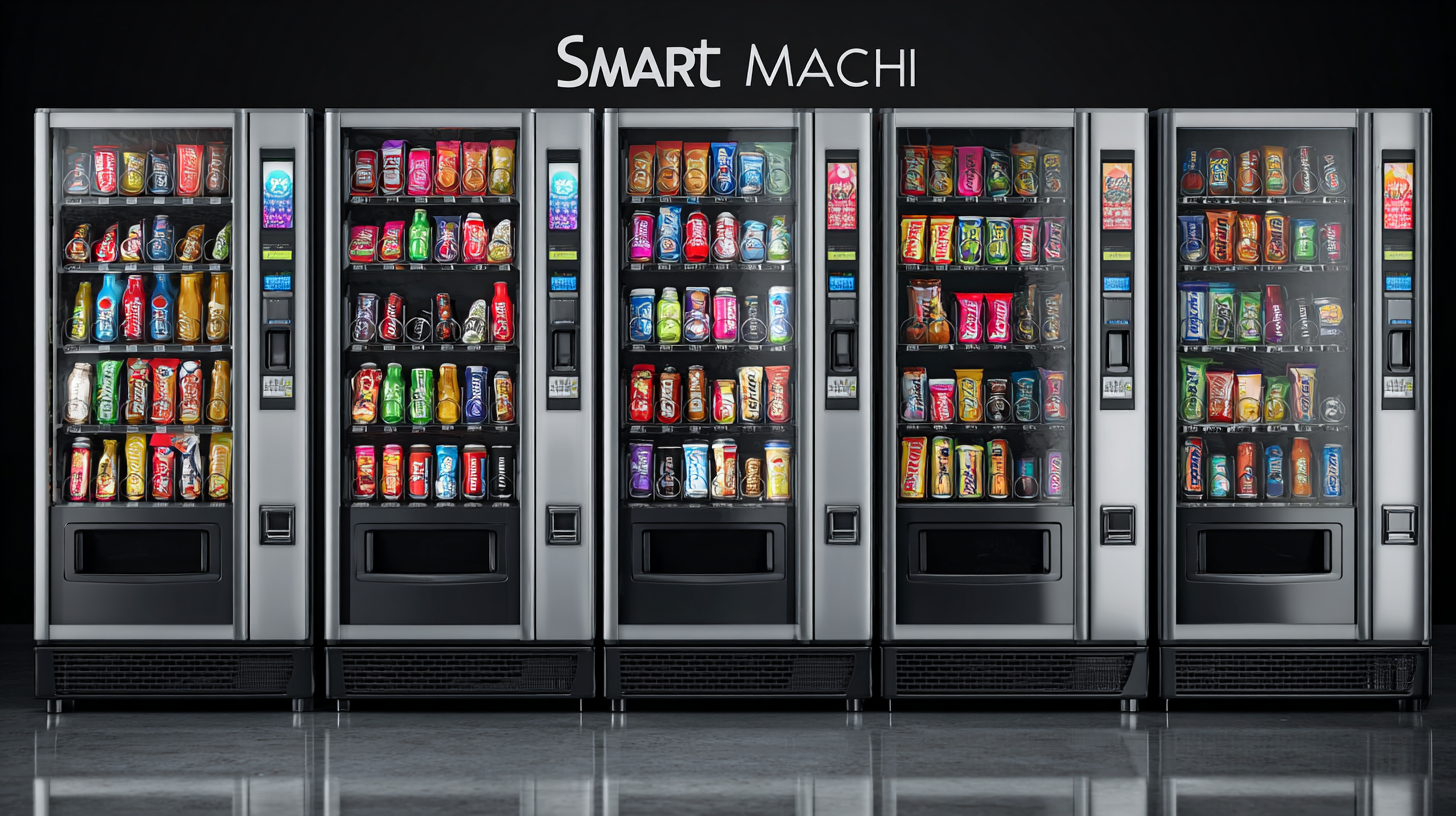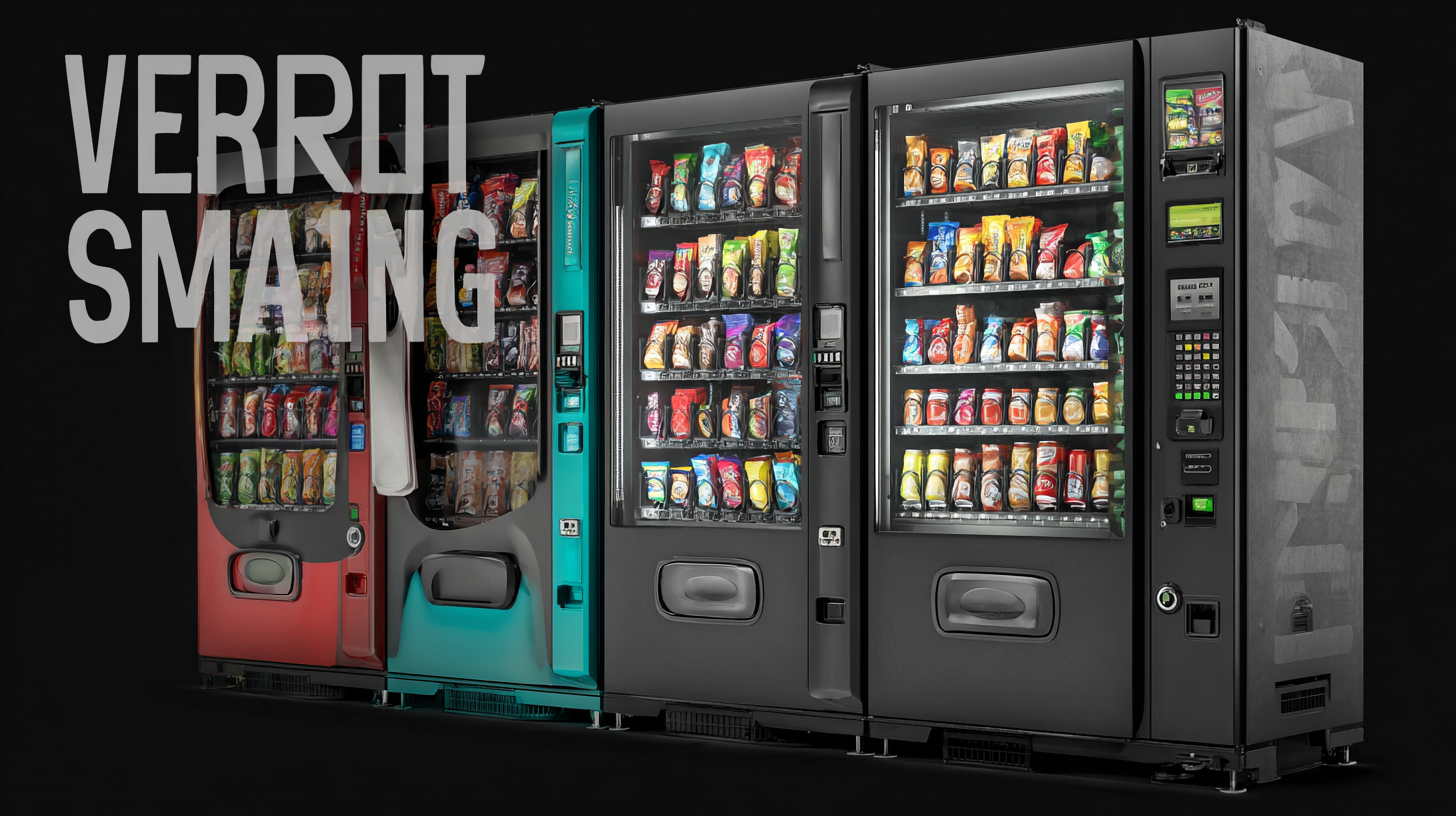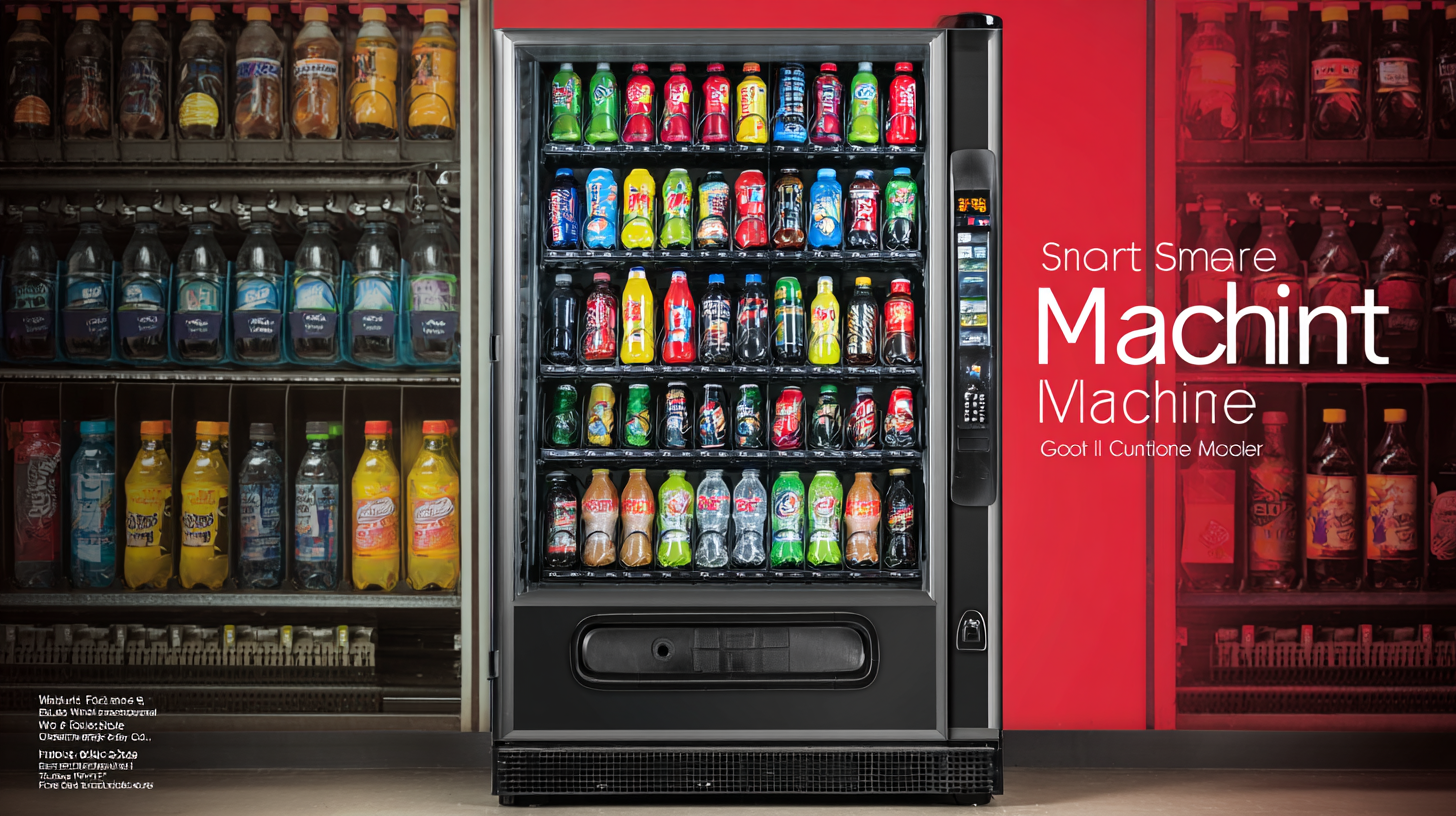Ultimate Guide to Choosing the Best Smart Vending Machine for Your Business
In recent years, the vending machine industry has seen a remarkable transformation, driven by technological advancements and changing consumer behaviors. According to a report by Allied Market Research, the global vending machine market is projected to reach $25 billion by 2027, with smart vending machines playing a pivotal role in this growth. These innovative solutions are not only enhancing the user experience through contactless payments and interactive interfaces but are also providing businesses with valuable data on consumer preferences and purchasing trends. As companies seek to optimize their operations and improve customer satisfaction, choosing the right Vending Machine Smart for their specific needs becomes increasingly critical. This Ultimate Guide aims to equip business owners with the insights and knowledge necessary to navigate the complexities of selecting the best smart vending machine, ensuring they stay competitive in this dynamic market.

Understanding the Smart Vending Machine Market Landscape for 2025
As we approach 2025, the smart vending machine market is evolving rapidly, driven by advancements in technology and changing consumer behavior. Businesses looking to invest in smart vending machines must first understand the landscape shaped by these developments. Trends indicate a growing preference for contactless payment systems, which not only enhance customer convenience but also ensure higher safety standards in a post-pandemic world. Moreover, the integration of artificial intelligence and machine learning provides valuable insights into consumer preferences, allowing businesses to optimize inventory and increase sales.
In addition to technology, businesses should consider the diverse offerings available in the smart vending machine sector. From snack machines that cater to healthier options to fully automated kiosks that provide an assortment of products, the variety is vast. Understanding the target audience and aligning machine features with consumer demands is crucial. As sustainability becomes more critical, many manufacturers are also focusing on eco-friendly designs, making it easier for businesses to align their values with customer expectations while contributing to environmental well-being. Keeping these factors in mind will empower businesses to make informed decisions when choosing the best smart vending machines for their needs.
Key Features to Look for in a Smart Vending Machine for Your Business
When considering a smart vending machine for your business, certain key features can significantly impact its effectiveness and profitability. A pivotal aspect to evaluate is **inventory management capabilities**. According to a report from MarketsandMarkets, the global smart vending machine market is projected to reach $9.4 billion by 2025, largely fueled by enhanced inventory tracking technologies that optimize product availability. Machines equipped with real-time inventory management not only minimize stockouts but also automatically notify operators when items need replenishing, allowing for consistent service.
Another essential feature is **cashless payment options**. With a PayPal study revealing that 68% of consumers prefer using digital wallets over cash for their transactions, integrating various payment methods such as mobile wallets, credit cards, and contactless payments can significantly enhance user experience and increase sales. Moreover, machines that offer data analytics tools can provide valuable customer insights and purchasing trends, enabling business owners to tailor their product offerings and maximize revenue potential. Investing in a smart vending machine with these advanced features can unlock new opportunities in an increasingly competitive market.
Key Features to Look for in a Smart Vending Machine
Evaluating Cost vs. Revenue Potential of Smart Vending Machines
When evaluating the cost versus revenue potential of smart vending machines, it’s crucial to conduct a thorough market analysis. Start by assessing the demographics and preferences of your target audience, as this will guide your selection of products to offer. For instance, if you're targeting health-conscious consumers, consider stocking healthier snack options, which may entice more customers and increase sales.
Tip: Consider running a trial or pilot program with a limited selection of products to gauge customer interest before making a larger investment. This approach can help you avoid costly mistakes and better understand your market's needs.
Additionally, analyzing the operational costs of smart vending machines is vital to maximizing revenue. Factor in the machine’s purchase price, ongoing maintenance, and any software subscriptions. By keeping these costs low while ensuring high product turnover, you can significantly improve your profit margins over time.
Tip: Invest in machines with data analytics capabilities. These features provide insights into sales patterns and inventory management, enabling you to optimize stock levels and adapt your offerings based on real-time data.
Ultimate Guide to Choosing the Best Smart Vending Machine for Your Business
| Feature | Option A | Option B | Option C |
|---|---|---|---|
| Initial Cost | $2,000 | $3,500 | $4,500 |
| Monthly Maintenance Cost | $100 | $150 | $200 |
| Average Revenue per Month | $1,000 | $1,500 | $2,000 |
| Return on Investment (ROI) | 50% | 42% | 33% |
| Energy Efficiency Rating | A+ | A | B |
| Payment Options | Cash, Card | Cash, Card, Mobile | Cash, Card, Mobile, Crypto |
| Product Variety | 20 | 30 | 40 |
Top Industries Adopting Smart Vending Technology by 2025
The adoption of smart vending technology is projected to rise significantly by 2025, transforming various industries across the globe. With an increasing emphasis on convenience, sectors such as retail, food and beverage, and even healthcare are integrating smart vending machines into their operations. These machines, capable of cashless transactions and real-time inventory monitoring, cater to a tech-savvy consumer base that values efficiency and accessibility. As the U.S. retail vending machine market is set to reach approximately $15 billion, businesses can leverage this trend to enhance customer experience and streamline service delivery.

In light of these advancements, industries that focus on consumer engagement and satisfaction are more inclined to adopt smart vending solutions. For instance, the food and beverage sector is not only reaping the benefits of offering diverse product selections but is also tapping into innovations like automated replenishment systems. Moreover, as technological breakthroughs continue to evolve, the next generation of vending machines will likely incorporate AI and advanced analytics, allowing businesses to further refine their product offerings and inventory management strategies. The landscape is shifting rapidly, and companies that embrace these changes will position themselves to thrive in an increasingly competitive marketplace.
Future Trends Shaping Smart Vending Machines in the Business World
The rise of smart vending machines is indicative of broader trends transforming the business landscape. As the global market for smart vending machines is projected to grow from $11.47 billion in 2025 to $36.89 billion by 2032, with an impressive CAGR of 18.2%, businesses are increasingly recognizing the potential of these automated solutions. This growth is fueled by advancements in technology, changes in consumer behavior, and the ongoing shift toward cashless transactions, particularly in Southeast Asia.
Tip 1: When selecting a smart vending machine, consider the integration of mobile payment options. This feature not only enhances customer convenience but also aligns with the growing trend of cashless transactions.
The surge in adoption of smart vending machines is also a response to the evolving consumer environment, especially post-COVID-19. As more businesses look to streamline operations and reduce physical interactions, these machines serve as a practical solution. Various verticals, including retail, hospitality, and quick-service restaurants (QSR), are benefiting from the versatility of smart vending solutions.
Tip 2: Evaluate the machine’s capability for inventory management and data analytics. Access to real-time data can help optimize stock levels, thereby improving profitability and customer satisfaction.
